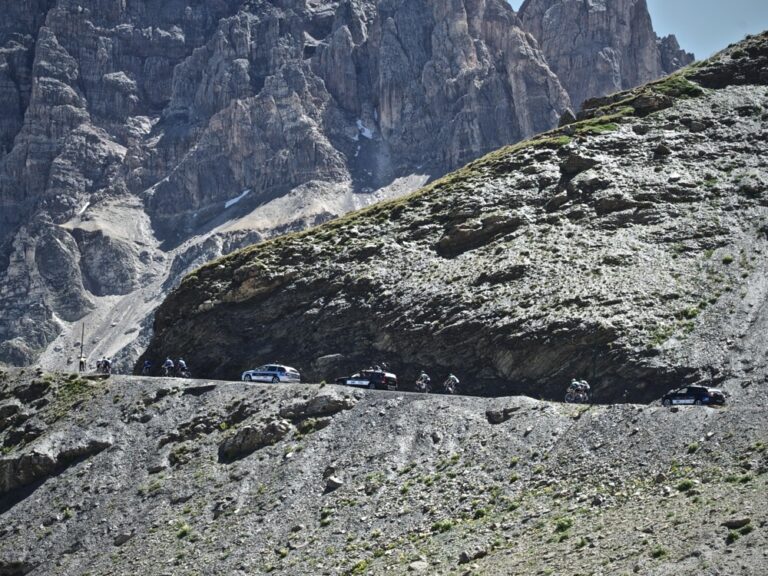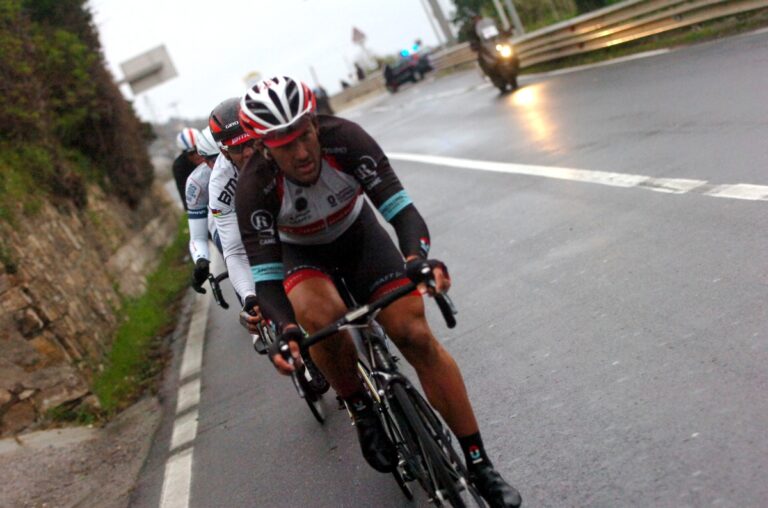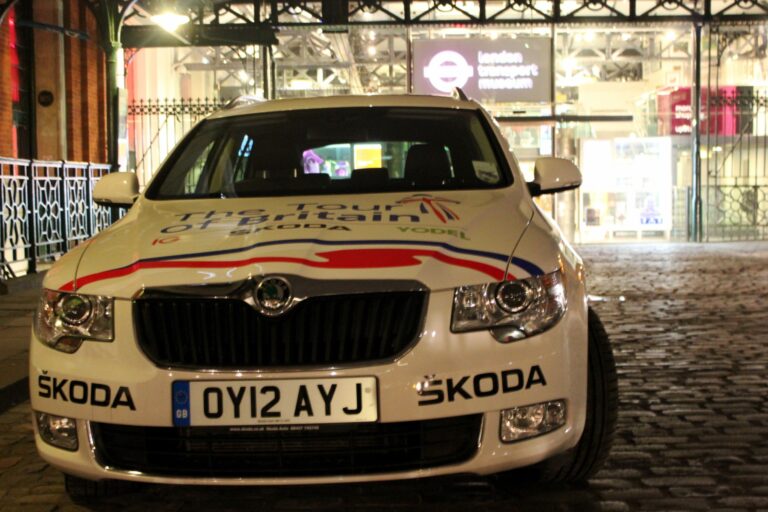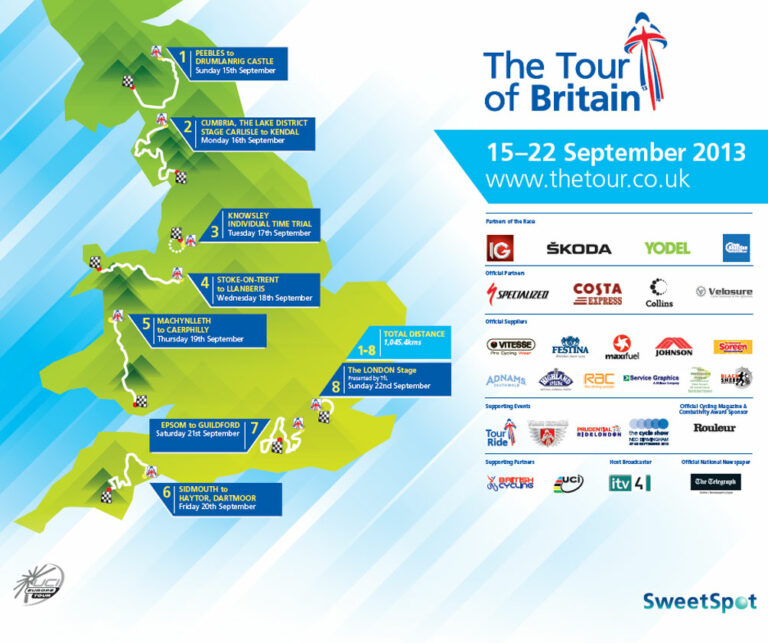The role of mechanic in any professional cycling team is demanding.
For a UCI Continental team in Britain, where the mechanic is likely to be working alone, and solely responsible for the machines on which the riders will depend, the pressure will be greater.
Steve Davis, mechanic for Team IG-Sigma Sport, is a man keenly aware of the damage a pressurised environment can do to team morale, and returns continually to the themes of preparation and team work during a conversation held variously in the support car and workshop during the team’s recent pre-season training camp on Mallorca.
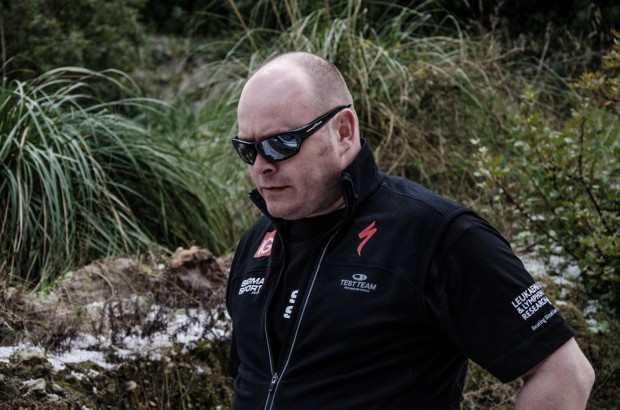
All mechanics hope for an incident-free race, he says, but all are aware that incidents occur. “Emotionally, you’re always on edge, always ready to jump out, always listening to the radio.”
“You do get emotionally involved in it. If you have a rider in the break, you start willing them on, hoping he’ll win, because he’s your team-mate. If things don’t got your way, you feel that disappointment as well. With mechanicals, you feel bad if something goes wrong with their bike, especially if it costs them the race, or effects their race in some way. There’s lots of emotions that you go through.”
Davis describes the mechanic’s role as a “marmite job” – one people love or hate. Constant travel, an existence he characterises as “living out of a suitcase,” is an element of the job with which he has no difficulty. For Davis, serving as team mechanic offers a level of job satisfaction absent from other roles. “When you’ve got a rider crossing the line first, that’s job done,” he says. “It’s all about team work.”
He carries sufficient tools in the car for a complete strip down of the bike. Spare bikes and spare wheels are stowed on the roof. Davis is confident in his ability to fix things “on the go” but believes most problems can be avoided by thorough preparation.
Typically, the team travels the day before the race and will meet at the hotel in the early afternoon. While the riders complete pre-race preparations on their race bikes, Davis will work on the training bikes, which may be pressed into service as spare bikes during the race.
On race day, Davis will rise before the riders and begin final preparations: attaching spare wheels and spare bikes to the roof of the team car, allowing the riders to pass directly from breakfast to the car and the race. “We just turn up to the race, take the bikes out of the van, rack them up for the riders, double check the tyre pressures with them, because they all run slightly different tyre pressures, and away you go,” he says. “Everything around them is calm, and everything is stress free. You want everyone to be chilled out.”
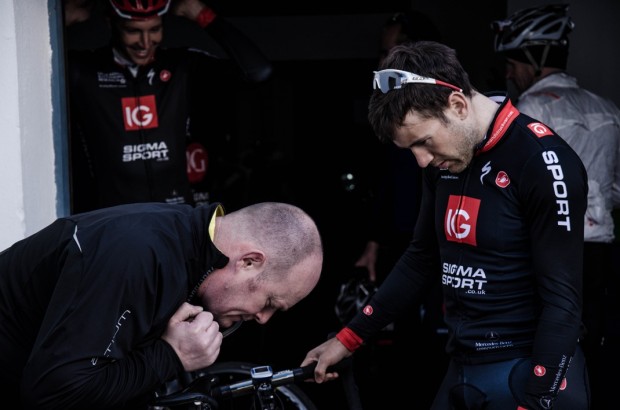
Davis is responsible for the maintenance of nearly 30 machines. Each of the riders is issued with two bikes: a Tarmac SL4 or Venge from Specialized’s flagship S-Works tier for racing, and an equivalent machine for training from the Expert range. Additionally, the riders have been offered a choice between a mechanical or electronic Shimano Ultegra set up for their race bikes. “The majority will be running Ultegra Di2 on their race bikes,” Davis says of IG-Sigma Sport’s riders. “A few have requested conventional Ultegra. It’s whatever the riders feel happier on.”
Has electronic shifting made life as a mechanic easier? As mechanic last year for Team UK Youth, he worked with Shimano Dura Ace Di2, and his experience in the industry’s retail sector has given him a detailed knowledge of the workings of Shimano’s electronic shifting system and the areas in which it could fail. He is impressed by the reliability of electronic shifting, but concedes it is not invulnerable; where mechanical set-ups can be grounded by a snapped cable, so an electronic system can fail with a battery issue, or a mech destroyed by a crash.
Team IG-Sigma Sport’s training bikes double as spare machines for races, where they are carried on the roof of the team cars. Because these “second” bikes are used by the riders between races, any work they require becomes another duty for Davis on the weekend of competition.
Additionally, the team’s four-man, “mini time-trial squad” will each have a Specialized Shiv at their disposal. On their return to the UK, Joe Perrett and Andrew Griffiths are due at Sigma Sport for a fitting using a motion capture system. Wouter Sybrandy, who has made a remarkable comeback from a career-threatening crash on the final stage of last year’s Tour of Britain, is among the riders to have had his position assessed. “Physically, he’s perhaps slightly different now,” Davis says of the Dutchman. “He’s basically having to retrain his body, so he’s working with Specialized as well to get dialed in, to keep him injury free and to aid his recovery.”

Specialized is a sponsor as well as the supplier of the team’s equipment. The closeness of the relationship is obvious even to the casual observer. James Booth, Specialized’s team liaison, and a man used to working with the brand’s WorldTour teams, Omega Pharma-QuickStep among them, is in Mallorca for much of IG-Sigma Sport’s training camp, and joins Davis for tasks ranging from bike washing to detailed conversations with the riders to determine set up.
Mavic is the team’s wheel supplier, and as a former employee of the French manufacturer, Davis will find himself at home advising the riders on wheel and tyre selection. He suspects the 1185-gram, carbon spoked Cosmic Carbon Ultimate will be the choice for most of the team. “It’s well proven. A lot of the WorldTour teams use this wheel. They’re very strong, very robust, and have a reputation for being bomb proof. They’ve got the characteristics the riders want: stiffness, lightness, and very aerodynamic,” says Davis. The deeper, if heavier Cosmic Carbone 80 is likely to feature too, he reasons, “because they like the way the wheel works and the performance gains from it.”
IG-Sigma Sport’s wheel selection will not be confined to Mavic’s upper echelon, however. The humble Ksyrium SL, the wheel deployed on each of the training bikes ridden in Mallorca, will be carried as spares and is likely to become the first choice on “very wet, horrid days” for what Davis describes as “the more consistent braking performance of alloy wheels”.
“The more experienced riders will know what they want to ride,” he adds. “The less experienced riders, we will give them a bit of guidance. I suspect they will talk among themselves and speak to the senior riders and get their recommendations.”
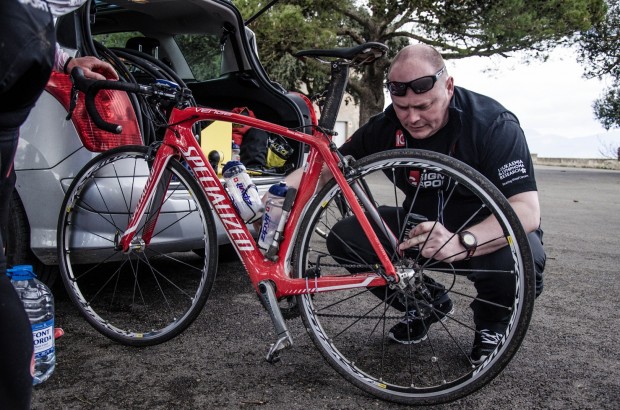
Certain races will provide Davis with a greater challenge than others. The Rutland-Melton classic, a race billed as “Britain’s Paris-Roubaix” and one that includes long sections of farm track, is already on Davis’ radar. “With a race like that, if you have a puncture in the wrong section, the car could be four or five minutes behind.” Most teams, he adds, employ additional staff for the race, whether they be soigneurs or casual staff deployed at strategic points with spare wheels. “At a race like that, with a puncture at the wrong time, you can lose the race,” he says, “so a lot of thought will go into that over the next few months.”
The team’s organizational structure, driven by operations manager, Becky Frewing, allows Davis to contact the riders between the races. “With some riders, you can just let them be. Other riders, you need to sit down with them, sit down with them, chat with them, perhaps get other sponsors involved, like James from Specialized,” he says. A rider who has had all his questions answered is a happy rider, he reasons, and the feedback helps him and the sponsors to provide the riders with the best product possible.
Davis’ season began in December, planning the equipment needed for the year ahead, passing on requirements ranging from the number of tyres, tubes, and cassettes needed to Frewing, who in turn liaised with the sponsors.
The practical side of his job as team mechanic is about to begin. The work of building race bikes and preparing wheels awaits. “I’ll have a busy couple of weeks,” he says.
Different members of the team have different goals for their time on Mallorca. For Davis, a fortnight with the riders in the Balearics offers the considerable benefit of a central location, and the chance to sit down with different riders and discover what they want from their equipment. “The goal for me on this camp is to build that relationship with them and strengthen it,” he says. By ensuring the riders are entirely happy on their training bikes, he can leave the island with a detailed knowledge of the position to replicate on the race machinery.
From the start of the season at the Eddie Soens Memorial Classic on Saturday March 2, Davis’ professional duties will follow a regular pattern. Mondays will be devoted to washing and checking the bikes, and returning them to storage. His thoughts will then turn to the next race, preparing the machines, contacting riders for any specific requirements; in short, completing as much of the pre-race preparation as possible to create a stress-free environment at the race weekend.
The mechanic is as crucial to the success of a professional cycling team as any of its star riders. Davis is clearly aware of the demands of the role as he prepares for a season in which his team will hope to mount a serious challenge for the biggest prizes on the domestic calendar.


